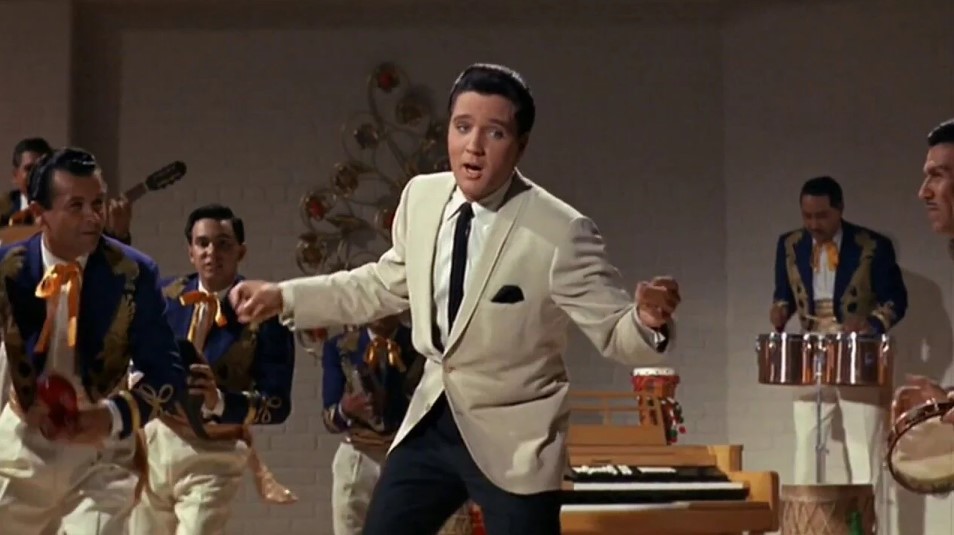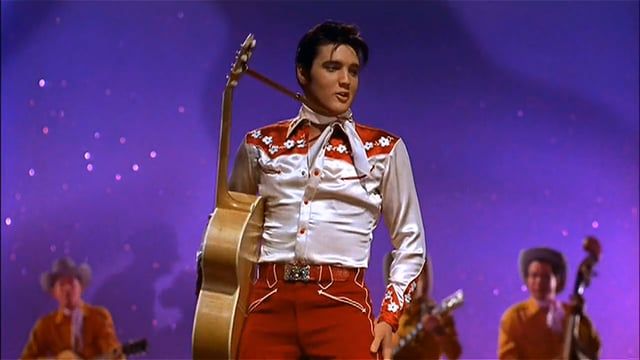
"Money Honey," originally written by Jesse Stone under the pseudonym Charles E. Calhoun and popularized by Elvis Presley in 1956, is a song that exemplifies the blending of rhythm and blues with rock and roll. This essay delves into the context of its creation, its inclusion in Elvis's repertoire, and the significance of its lyrics.
Context of Creation
"Money Honey" was first recorded by Clyde McPhatter and the Drifters in 1953, becoming a major hit in the rhythm and blues market. Elvis Presley's version, recorded and released in 1956 on his debut album with RCA Victor, came at a time when Elvis was transitioning from a regional sensation to a national superstar. This period was marked by Elvis's innovative approach to music, where he integrated African American musical styles into mainstream pop. The choice of "Money Honey" reflected not only his musical tastes but also his ability to connect with a broader and diverse audience by crossing racial and genre boundaries.
Elvis Presley - Money Honey - 1956
Analysis of Lyrics and Their Significance
-
Verse One:
- Lyrics: "You know, the landlord rang my front door bell. / I let it ring for a long, long spell."
- Analysis: The song starts with a narrative about financial distress, depicting the singer's struggle with meeting basic obligations such as rent. The casual attitude toward the landlord's persistent calling reflects a rebellious or carefree spirit, characteristic of early rock and roll themes.
- Significance: This opening sets the stage for a portrayal of financial woes, resonating with many listeners who may have experienced similar hardships. It also introduces a tone of defiance, common in the youth culture of the 1950s.
-
Chorus:
- Lyrics: "Well, I got a woman, way cross town. / She's good to me, oh yeah!"
- Analysis: The chorus shifts the focus from financial issues to personal relationships, highlighting how the protagonist's partner provides emotional and possibly financial support. This juxtaposition of money troubles with relationship stability was a common theme, reflecting the social dynamics of the time.
- Significance: The emphasis on the supportive role of the woman could be interpreted as a commentary on the importance of personal relationships over material wealth, which was a somewhat progressive notion amidst the consumerist culture of post-war America.

-
Bridge:
- Lyrics: "She said, 'I'm so glad I'm living'. / I cried, 'I'm so glad you're mine'."
- Analysis: The bridge offers a moment of emotional depth, showing mutual appreciation and contentment within the relationship despite external pressures.
- Significance: It suggests that love and human connection provide a sanctuary from financial stress, reinforcing the song's underlying message about the value of personal bonds over economic success.
Conclusion
"Money Honey," as performed by Elvis Presley, serves as a snapshot of the socio-economic and cultural tensions of the 1950s. The song captures the essence of rock and roll's rebellion against conventional norms, while also embracing themes of love and loyalty that transcend monetary concerns. Elvis's rendition, with its vibrant energy and charisma, helped cement the song's place in the annals of rock history, highlighting his unique ability to communicate complex emotions through music. This track not only reflects the economic struggles common during its time but also celebrates the resilience of the human spirit in the face of adversity.
